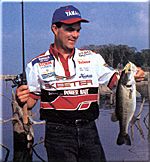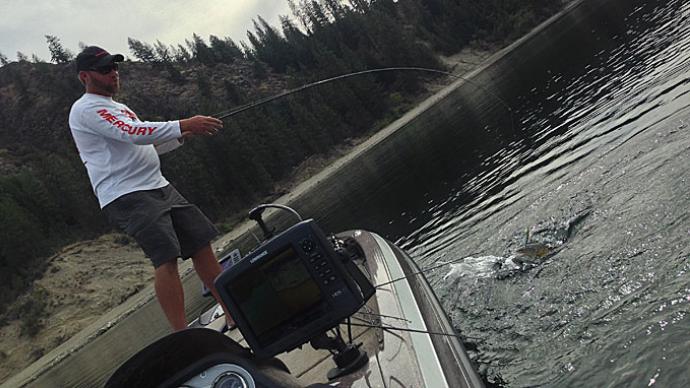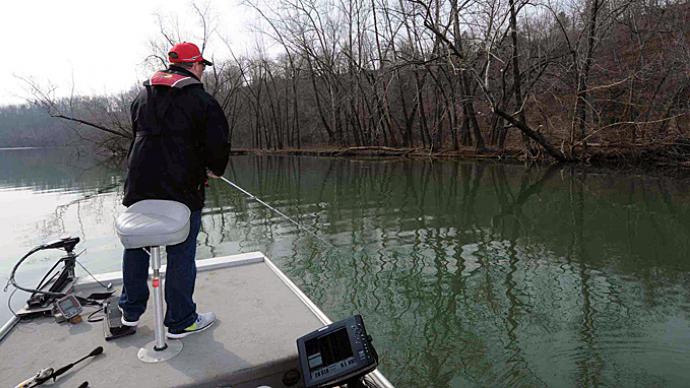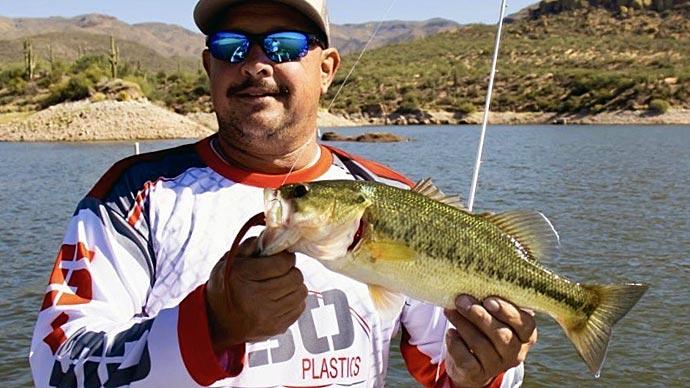
Of all the different aspects of tournament angling, without a doubt, the least understood by the average angler is the matter of prefishing. Even the word "prefishing" is ambiguous. Just mention that word to someone who knows little about bass tournaments, and you'll get some funny looks.
There are at least two different times to prefish. The first is the practice period that takes place a week or two before the event, and the second is the practice that takes place immediately before the competition. Both practice sessions can be integral to a successful tournament, but if they're improperly conducted, they can ruin your performance.
I have spent as much time prefishing before tournaments as anybody in the last ten years, and I've learned some things that can pay off for pros and amateurs alike.
When I began my pro career out West, I lived out of my van. I traveled from lake to lake, prefished, tournament fished and then moved on to the next lake. I averaged seven days of prefishing for each tournament. Now, because of time constraints and plenty of experience, I prefer less.
Prefishing is important in lakes and rivers I've never seen before, so new bodies of water are where I spend my time.
The main objective during the advanced prefish is to learn where everything is. I want to know the "personality" of the lake. That is where the different types of structure are, noting changes in water color, depths, and basic stuff. That way, when I come for the tournament and find a bass holding on a particular type of cover, I know where I can run to find some more without wasting time.
One of the best lessons I have learned over the years while prefishing tournaments is that my time is more efficiently spent learning a small, critical section of the lake. Trying to cover too much water is a big mistake. No angler will be able to learn the whole lake in one week, so try to become intimate with one or two areas that look like they will be good when you come back. Don't bite off more than you can chew. When I try to cover too much water, I often pass right over some good fish. This basic premise is easier to talk about than it is to execute.
Catching a lot of fish early on in the prefish can mess you up. An angler will catch a nice stringer a few weeks before the tournament and instantly get locked onto that pattern and area. He goes back for the tournament and tries the same things that worked two weeks earlier in the same area, and he fails. Fish change daily, and most of the time, they change a lot in two weeks.
I've learned not to be concerned with catching many fish during this prefishing period. Sure, I want to catch a few to gain confidence, but I'm mainly concerned with learning the lake. I worry about how to catch them during the official practice period.
Don't worry if you cannot spend any time on a lake before the cutoff period. Some of my best finishes have come on new lakes that I didn't have the time to prefish. The real key in this situation is committing yourself to one part of the lake and not being concerned with what is going on around the rest of the lake. It is hard to gain confidence in a part of a lake without ever seeing it before, so you have to rely on information from past tournaments, advice from other anglers, or your natural intuitions. This is a very exciting way to fish a tournament. You have to believe that the bass in your chosen area and figure out how to catch them.
Let's move now to the official days of prefish. Most tournament circuits allow the angler two days of practice before the competition starts. How you spend the time should largely be determined by how many days the tournament will run. The short tournaments of one or two days require the angler to be on fish right out of the box. There is no time for catching up in these short events. So it is essential in the prefish period to determine where you will fish and what you will throw.
As we fish on the B.A.S.S. Tour, the longer tournaments require a different approach during the official prefish period. In this situation, I often try to determine the seasonal pattern for the area of the lake I plan to fish. I want to get a few bites in prefish, but mostly I'm just looking for an area and technique that fits the seasonal pattern.
I have noticed an interesting phenomenon recently occurring at the B.A.S.S. Tour events. The winner is the angler who finds a new pattern or area for quality fish that emerges during the competition. That is to say, the area or pattern that eventually wins does not work during the practice period. The pros are so good these days that if a pattern or area is working during practice, multiple anglers find it. You can't win a tournament by sharing fish with other talented pros. Shared fish will not hold up for four days of competition.
I ask the following during practice: what pattern or areas that are not working now might soon turn on? The key here is noting the current weather and water conditions and predicting what changes may occur.
Many guys have a record of busting a big stringer on the first day, and then they slowly slip away as the event progresses. While on the other hand, other guys move up in the standings each day. The difference is their prefish strategy.
Reprinted with permission from Bass West Magazine




